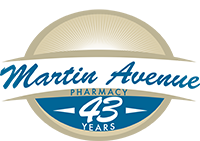Oral versus Topical NSAIDs
Oral versus Topical NSAIDs for Treating Injuries and Rheumatic Diseases
Oral non-steroidal anti-inflammatory drugs (NSAIDs) are among the most commonly prescribed medications worldwide and are responsible for approximately one-quarter of all adverse drug reaction reports. NSAIDs are widely prescribed for patients with rheumatic disease, and as these patients are often older, many are at increased risk for serious gastrointestinal (GI) complications.
Topical administration of NSAIDs offers the advantage of local, enhanced drug delivery to affected tissues with a reduced incidence of systemic side effects, such as peptic ulcer disease and GI hemorrhage. NSAIDs applied topically also reach the synovial (joint) fluid. The goal of using topical NSAIDs is to achieve high tissue levels beneath the site of application (such as the knee or elbow), resulting in relief of pain and inflammation, while minimizing the amount of systemic absorption and risk of side effects. Topical administration produces systemic blood levels that are only 15% of those achieved when the same dose is taken orally, yet tissue concentrations below the application site have been found to be one hundred times higher with topical administration versus oral administration. In conclusion, topically applied NSAIDs provide high local concentration below the site of application but lower systemic exposure, i.e., more benefit with fewer risks. Studies report the benefits of NSAIDs for treatment of musculoskeletal and soft-tissue injuries as well as rheumatic diseases. Research and clinical experience provide clear evidence that topical NSAIDs are effective analgesics and may be administered in various dosage forms, including gels or sprays, to treat soft-tissue injuries.
Product formulation may have a dramatic impact not only on absorption rates but also on penetration depth, and inactive ingredients that must be used to formulate a medication into a cream or gel may cause skin irritation. For these reasons and more, it is important that prescribers and patients select a compounding pharmacy with state of the art equipment and properly trained personnel that utilize the highest grade of chemicals.
We welcome your questions.
Copyright 2004, Storey Marketing – Monthly Website Updates. All rights reserved. Questions regarding this article should be directed to the compounding professionals at Martin Avenue Pharmacy, Inc..
